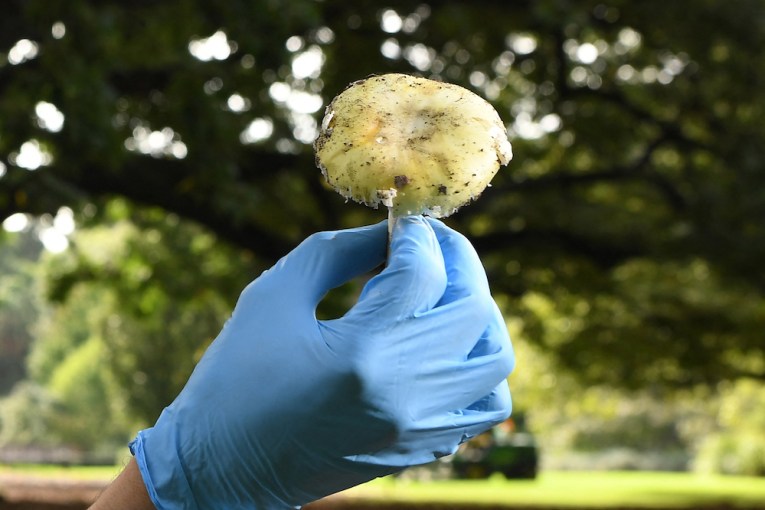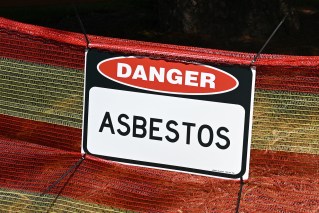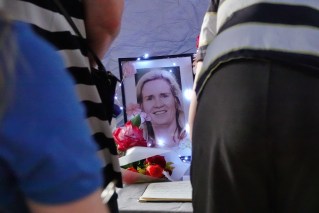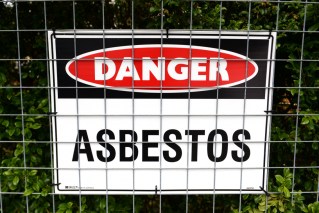‘Ticking time bomb’: Staff raise alarm bells about patient safety at Mildura Base Hospital

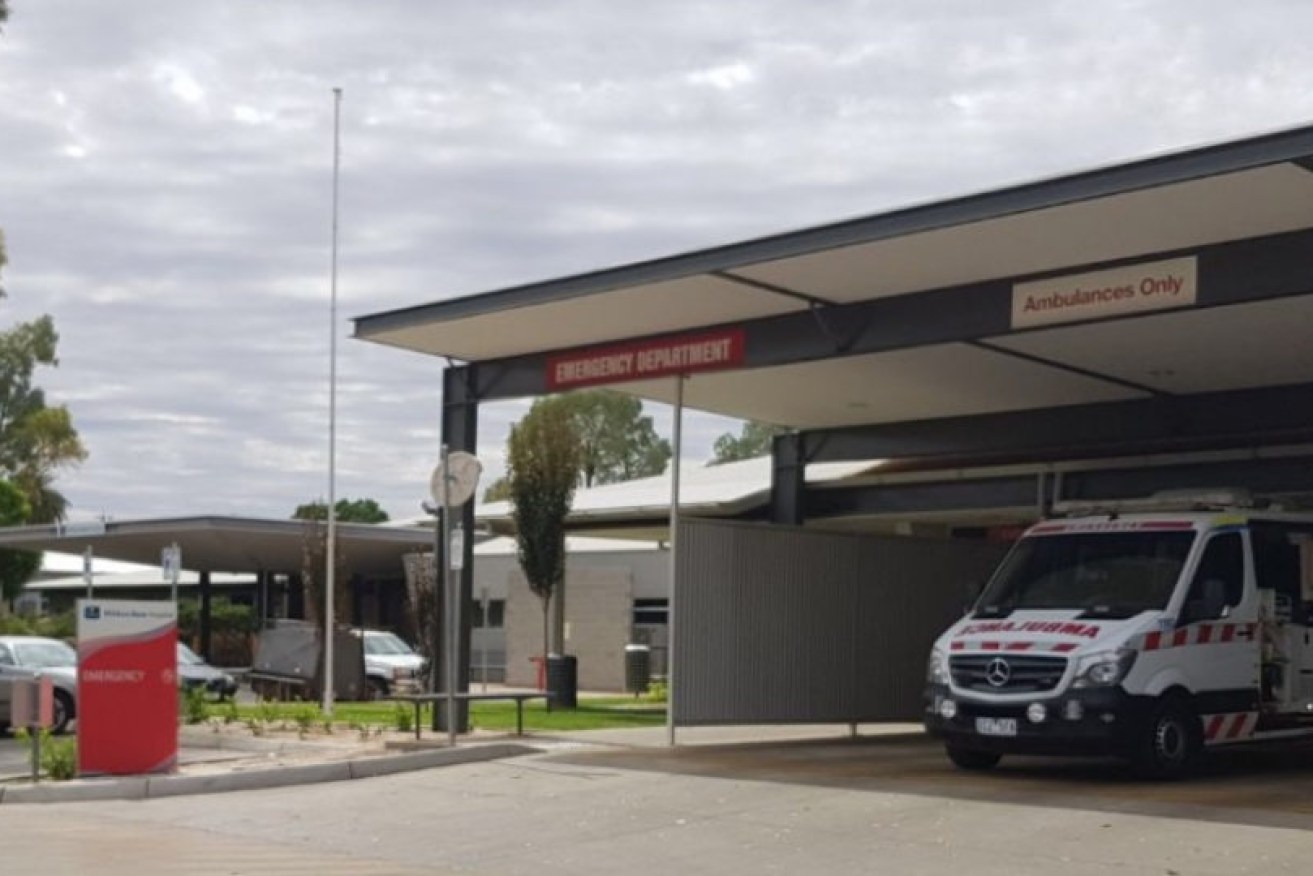
Mildura Base Hospital is the last remaining government-owned, privately-managed hospital in Victoria. Photo: Noel Pound Photo: Noel Pound
Pharmacist Dan* worked tirelessly behind the scenes to rectify doctors’ prescribing errors at Victorian state-owned Mildura Base Hospital (MBH).
In one of the most catastrophic mistakes, one patient could have suffered a life-threatening haemorrhage had he not fixed a drug blunder.
Unfortunately for patients, Dan was short-staffed, underpaid and overworked – so he didn’t have time to double-check every prescription. Nor were all oversights reported.
The problems didn’t end there.
Dan, along with other current and former staff, has blasted Ramsay Health Care, the multibillion-dollar health company charged with the operation of this busy hospital.
They claim the company’s focus on cutting costs has resulted in unsafe patient discharges, deadly prescribing errors, elective surgery cancellations, and the temporary shutdown of beds and birthing suites.
An investigation by The New Daily has found that despite receiving millions in taxpayer funds, the privately-run hospital doesn’t have the same oversight as others in Victoria. It has consistently evaded mandatory accountability requirements.

Mildura MP Ali Cupper has led the campaign to end privatisation of MBH. Photo: Facebook
The hospital where patients are scared to be treated
Dan, who resigned due to poor working conditions, said the number of patients re-admitted within 48 hours of discharge was “out of control”.
Many were sent home without having their discharge medication reviewed by a hospital pharmacist, Dan said.
And, many were arriving back in emergency as a consequence of being discharged too early.
Triage nurse Natalie* agreed, saying: “It’s a ticking time bomb.”
She said management had rejected her repeated requests for additional staff to help unclog the emergency department.
“They don’t give a reason why. I think it’s about saving money.”
In one extreme case, doctors sent home a patient with kidney failure after forgetting to review his blood test results, Dan said.
Two patients were readmitted after developing blood clots because they were not prescribed anticoagulants, which are meant to prevent clots from forming.
Dan said patients had been receiving a “poor level of care” because many medical officers had only overseas qualifications and lacked knowledge of the “therapeutic guidelines” and “hospital practice protocols”.
One overseas-trained doctor, whom the hospital appointed as its medical officer, made “countless” mistakes with medications, Dan said.
The level of medical knowledge he had with medication management was less than that of a fifth-year medical student.”
MBH doctor Sarah* said staffing levels are low in every department, noting there are more overseas-trained doctors and medical locums (staff on temporary, short-term contracts) than there are permanent workers.
She said junior doctors were also filling roles outside their scope of practice.
“The new term of junior doctors here are floundering and not being well supported because of staff shortages and a lack of consistent senior medical staff,” Sarah added.
A Ramsay Health Care spokesperson said: “Junior doctors are fully supervised and supported by senior medical staff.”
Sarah said that at one stage, the hospital was “so short” on midwives, it was forced to close birthing suits, leaving staffers scrambling to arrange costly, taxpayer-funded transfers for pregnant women by air ambulance.
Elective, emergency, orthopaedic, gynaecological and general surgical cases are “moved multiple times” because of recurring staff shortages, namely a lack of anaesthetic doctors and theatre nurses, Sarah said.
“Where’s the investment in improvement and quality control? I can’t see it. My doctor colleagues and nursing staff can’t see it,” she said.
A Ramsay spokesperson said, “Birth suites are always staffed to meet the needs of birthing women in the community”.
The spokesperson said 6500 surgical operations were performed at MBH in an average year, and fewer than 1.5 per cent in the past 12 months were cancelled on the day of surgery due to insufficient staffing or in-patient bed capacity.
Every month, doctors meet senior clinical staff to run through a list of mortality and morbidity cases, ideally to prevent avoidable problems from recurring – a requirement set out by Victorian government agency Safer Care Victoria.
Sarah was aware of the same avoidable problems and “near misses” raised every month.
Because, as Sarah explains, as long as MBH management can tick off that all the relevant cases in that month had been presented, there is no meaningful effort to find ways to stop issues from recurring.
‘It’s almost slave labour’

Jane MacAllister resigned from MBH after realising she “didn’t want to continue devaluing myself in the same way that they obviously did”. Photo: Facebook
Former Freedom of Information and medico-legal officer Jane MacAllister said she was left “traumatised” after years of having to perform duties that fell outside her job description.
Those duties included ringing around to work out what to do with unclaimed bodies that did not have a next of kin.
I was stressed to the point where I was feeling physically sick going to work each day.”
Ms MacAllister, who was elected a Wentworth Shire councillor in 2016, said staff were continually expected to manage increased workloads with fewer resources as Ramsay Health Care trimmed costs.
“It’s this insidious claiming of more and more of your time so that you’re made to feel like you have to do extra duties and if you can’t … you’ll get given fewer and fewer shifts until you eventually have no choice but to leave,” she said.
“It’s almost slave labour techniques.”
MBH’s annual reports tell a far different story to the avalanche of accusations.
MBH’s 2017-18 annual report – uploaded to the website the day after The New Daily asked why it was not publicly available – revealed that MBH made a $2.7 million profit, surpassing the $2.679 million it pocketed over the previous year. (It is not specified to which body the profit goes.)
The Victorian Department of Health and Human Services (DHHS) says it monitors MBH in the same way as other public hospitals, but it does not monitor MBH’s elective surgery performance, and has only recently introduced a review of its organisational culture, including bullying.
Apart from its financial statements, MBH is not required to follow the state government’s annual reporting requirements, a Ramsay spokesperson confirmed.
In its 2017-18 annual report, for example, MBH did not divulge the results of a considerable number of performance targets set by the DHHS. This includes the number of patients who died in hospital after being admitted with a condition where the risk of death is less than 0.5 per cent.
It also glossed over workforce numbers (by not reporting total contracted hours) and failed to disclose work-related violence, occupational health and safety data, ICT expenditure, details of consultancies, and a summary of the health service’s environmental performance.
It failed to provide an annual declaration on its compliance with several laws, including the Safe Patient Care Act, which regulates the nurse and midwife to patient ratios in Victoria.
MBH is not required to table its report in Parliament and has operated without a health service board to monitor the performance of the CEO and ensure the service meets community needs – among other responsibilities.
*Names have been changed to protect the privacy of former and current MBH staff.
